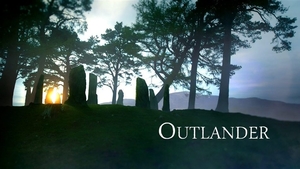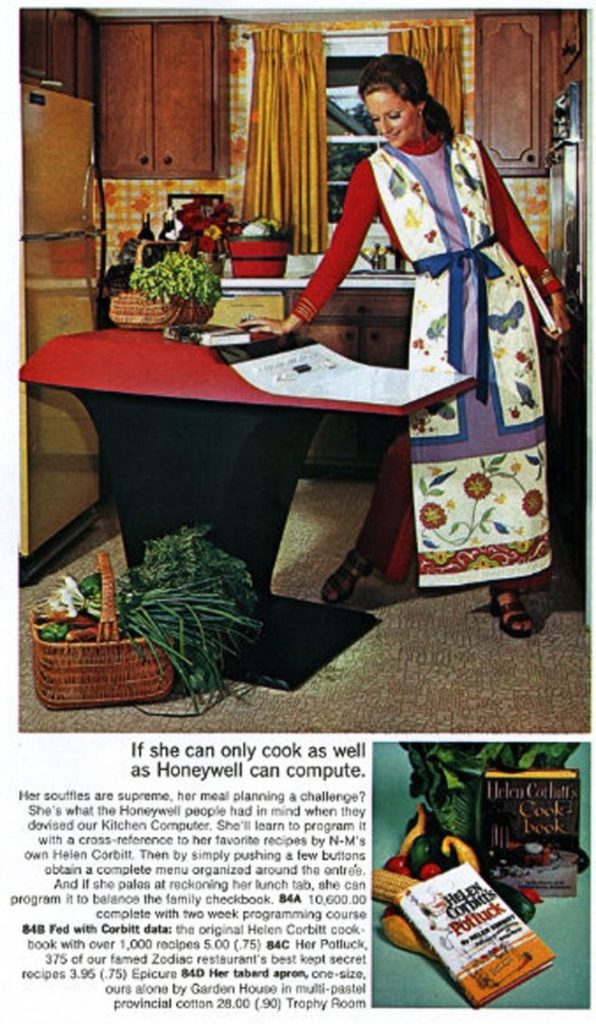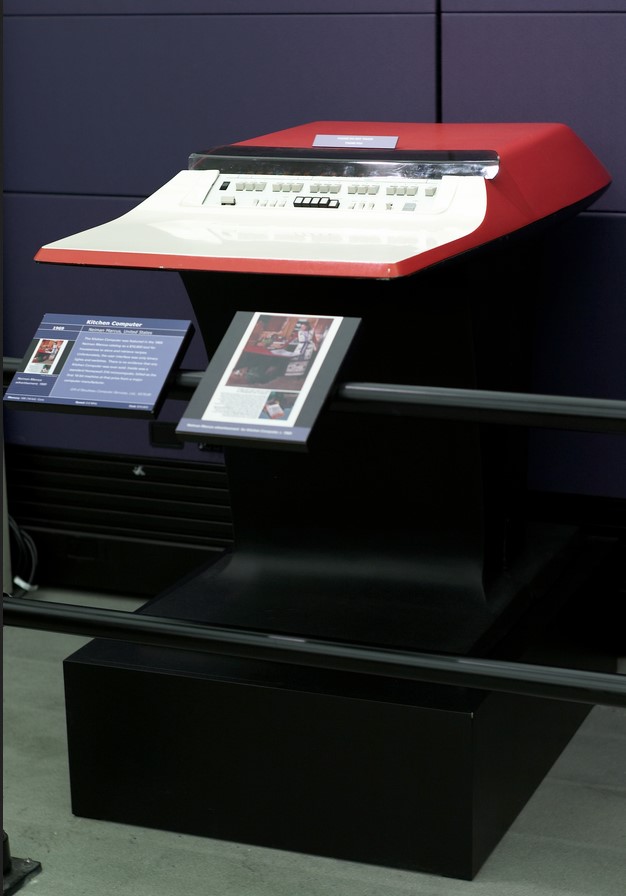
- For Mum, what makes a good fantasy’s a fickle thing.
- What is fantasy, anyway? Is sci-fi really just fantasy with its back turned?
- We could do with a ‘Fantasy for Mums’ survey. Nothing for ’em without ’em. Right?
My Mum wouldn’t be caught dead saying this – not that she’s ever said it – but she is a fantasy snob.
There are many works of fantasy that she will not read, or watch, on the principle of ‘it’s no real.’ She, Dad and I all binged the recent series of Outlander, which essentially is a time-travel fantasy story playing coy because everything in it did exist in history, it’s just that it’s been all jumbled up. It’s real, except ‘it’s no real,’ because the main characters, being from the future, are quite audacious in their grassing on History. Despite all this grassing, insofar as I’m aware, they still manage to go down the right leg of the Trousers of Time:
https://wiki.lspace.org/Trousers_of_Time
Alternate histories are quintessentially fantasy. We’re always telling compelling stories amongst ourselves about the what-ifs, maybes, and might-have-beens. I don’t want to call them tame, but when it comes to Mum, there are definitely fantasies out there that I would categorise as the ‘stronger stuff’ – the sorts of works that ‘arenae real.’
If my Mum’s getting excited about any work of fantasy, it’s going to be something like Outlander or Poldark – and not, on the other end of the scale, something like Doctor Who, which essentially is a wibbly-wobbly-timey-wimey time-and-space-travel fantasy series full of derring-do, otherwordly creatures, and appearances on BBC prime-time quiz shows like The Weakest Link:
Truth be told, I’ve never seen a single episode of Doctor Who. My closest interaction with the franchise is visiting the technicians’ labs in Abertay, where K-9 was (and still is, presumably) in for repairs. It could be about a doctor fighting for his career, flying about a community that’s he’s just moved to, stuck in a time loop where the day he moves in plays on repeat. Doc Martin meets Groundhog Day, in my mind. Of course, I know it better through cultural osmosis – and so does my mum, because Doctor Who falls squarely in the realm of ‘sci-fi pish,’ with the subtitle: ‘All the things your Dad would watch.’1
Science fiction is just fantasy with its back turned, and just as varied. I think what drives her opinions on what’s ‘real’ and what ‘isnae real’ are the aesthetics. From what I’ve seen of Black Mirror, she’d probably like most of it, if it interests her at all; though anything pertaining to the fantastical and or supernatural are a no-go. Be there dragons, aliens, masked and costumed men, or wizards, she’ll have no truck with it.
If the aesthetics don’t, say, carry the weight of emotions that characters feel, suspension of disbelief snaps back like a bungee cord, and she can’t take it seriously. Which is why she could quite happily chat with her sisters about a gripping edition of Coronation Street2, but also why I probably won’t catch her chatting about reeling at the emotional beats of a Discworld novel anytime soon. The Mancunian district of Weatherfield exists as an ordinary slice of life for thirty minutes every weekday, an hour if there’s a wedding (and then a funeral); the city state of Ankh-Morpork, through the course of forty-one novels, and several adaptations for film, television, and the stage, doesn’t, and never did. What sense is there in believing in a world where witches are occult district nurses, midwifes, childminders, and chiropractors? None of it’s real!
Even in Weatherfield, as real as fake gets on television, Chekhov’s Gun is a universal law – if your character is going to be killed off, you WILL show the viewer their forgetting to charge their phone, and it WILL run out of juice when they need it most:
https://www.britannica.com/topic/Chekhovs-gun
It’s a world where a disproportionate number of residents in the local area die gruesome or heart-wrenching deaths, yet new tenants flock to it like Elvis has hobbled to the cobbles (uhuhuh) – and it’s also one where our heroes, in a million-to-one chance, defy certain death3:
There was a time, I’ve been told, deep in the annals of history – the hazy mists of time labeled ‘Before I Could Write’ – that my Mum did consume works of fantasy. This was a world you could walk into the BM household and – oshahoorsir – catch The Simpsons on the telly. A cartoon! That’s like the aesthetic opposite of Mum today. But then I was then told that it was yet another ‘thing your Dad would watch.’ At least it was tolerated.
Fantasy oozes its way into everything like that. It’s not a genre of fiction so much as it is the ‘Ur-literature,’ to quote Terry Pratchett once more:
“Fantasy is without a shadow of a doubt the ur-literature, the spring from which all other literature has flown. Up to a few hundred years ago no one would have disagreed with this, because most stories were, in some sense, fantasy. Back in the middle ages, people wouldn’t have thought twice about bringing in Death as a character who would have a role to play in the story… Fantasy is a kind of plasma in which other things can be carried… almost a sea in which other genres swim.”
https://www.goodreads.com/quotes/9654148-o-you-re-quite-a-writer-you-ve-a-gift-for-language
We just can’t stop telling ourselves stories – but until the late 19th century, no-one really cared to categorise books under rigid genres. Folk often rate Mary Shelley’s Frankenstein as the first ‘proper’ sci-fi novel. The Georgians who got their hands on a first edition would’ve called it ‘Mary Shelley’s book Frankenstein.’
I believe genre was really more to the benefit of booksellers and librarians, who could organise their collections based on theming. It’s not for would-be fantasy writers to take the Fantasy section of their local Waterstones as a strict ontology for fantasy, and the words of the authors as their epistemology: ‘This is what a fantasy novel is, because it’s got these things in it and you will use at least one of these things or else it’s not fantasy!!!!’
My Mum, in her age, has refined her taste for what makes good fantasy. But what if I was to run a ‘Fantasy for Mums’ survey, on the principle that no fantasy for a mum should be written without a mum on board? That way, I might write a fantasy novel filled with things mums want to see. They deserve a fantasy for themselves, and I don’t mean the fantasy-you-give-to-your-kids kind. That’s the sort of thing we encounter when someone sits down at their desk one day and asks, “If I was a Mum, what would I want in a fantasy?”5
Things that are marketed to mums that were developed without a mum aren’t a rare occurrence. Take the Honeywell ‘Kitchen Computer,’ for instance, which for $10,000 in 1969 would allow mums to take their old degrading recipes from loose-leaf books and magazines, and digitize them for the Kitchen of Tomorrow:


You can tell a mum wasn’t on the design team. The all-male team had extrapolated just about every use case for a computer in the late 1960s, and came to the conclusion that since mums do all the cooking, and computers stored a lot of data, a recipe is just another data structure, so a computer could store a lot of recipes. Therefore, the imaginary mothers they’d made up in their heads could have their lives made much easier. Boom, mum’s the word, cha-bloody-ching. All she needed to do was to study a two-week course on toggling the binary switches required to receive the recipes. The task of remembering whether the lemon chicken recipe was stored at 0x01101111 or 0x10011101 was so easy, her mum could– err, well, maybe it wasn’t that easy.
This all-male team had pitched and designed a product, had adverts posted in the Neiman Marcus catalog (Think a high-end Woollies or John Lewis), and they never sold a single unit. Even if they didn’t plan to manufacture en masse, someone had to have thought “Yes, mums’ll love this, it’s got Mum written all over it, this is bloody brilliant, just wait until Mum hears about this…” The advertising was as much a spectacular fantasy as the imaginary user stories the design team psyched themselves up with to drive its creation.
https://www.wired.com/2012/11/kitchen-computer/
On that thought, reverse the ‘Fantasy for Mums’ survey. My Mum knows what she’s into, and she’s not every mum. Neither am I a mum. I think I’ll wait for the second half of Outlander to come out – because for eight hour-long periods, we all know that if we’re not careful around the standing stones, where witches dance at night dans le scud, we’ll fall down the wrong leg of the Trousers of Time.
More importantly, it’s written by a mum.
- That being said, I think the last time my Dad watched an episode was during the David Tenant era. He didn’t like it, as I recall. ↩︎
- Soaps lie at the most extreme ends of fantasy, in my opinion – speculative storylines about a community that doesn’t exist, affected by events that never happened, and played so straight that all suspension of disbelief wraps around itself. ↩︎
- As anyone clued in on fiction-writing ought to know, a million-to-one chance crossed with certainty is really a 50/50 when you get down to it. Soap crews have often filmed multiple endings to a scenario to keep the actors and audience guessing:
https://forums.digitalspy.com/discussion/1966381/corrie-alternative-endings. ↩︎ - He’s just really pissed off at not being able to get a blister-pack of Strepsils for his throat. ↩︎
- May also be asked by someone who curses heaven and earth they didn’t write Fifty Shades of Grey first. ↩︎